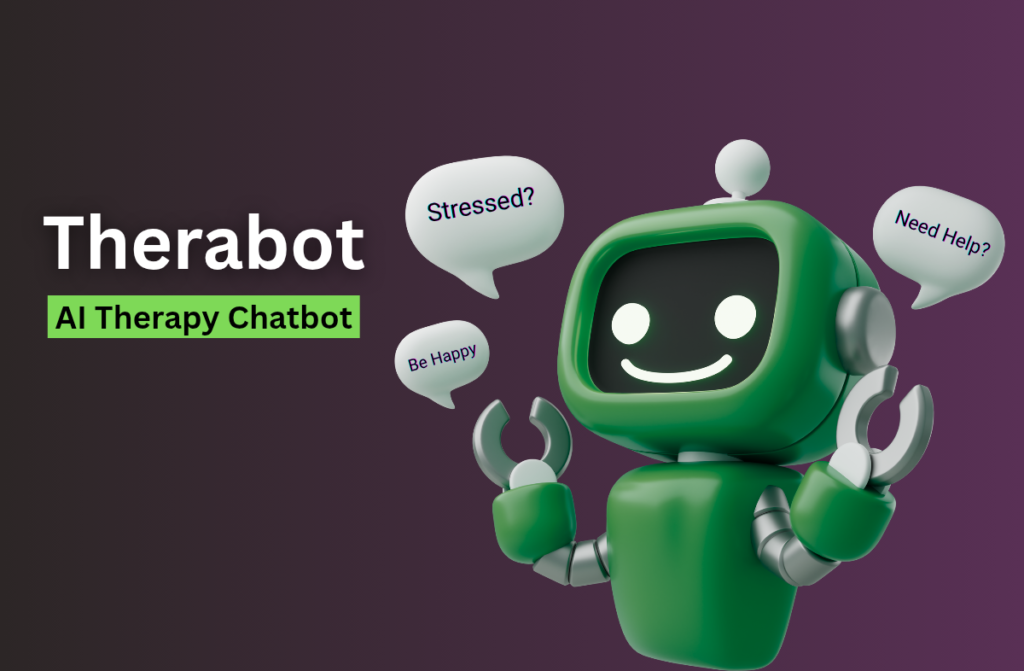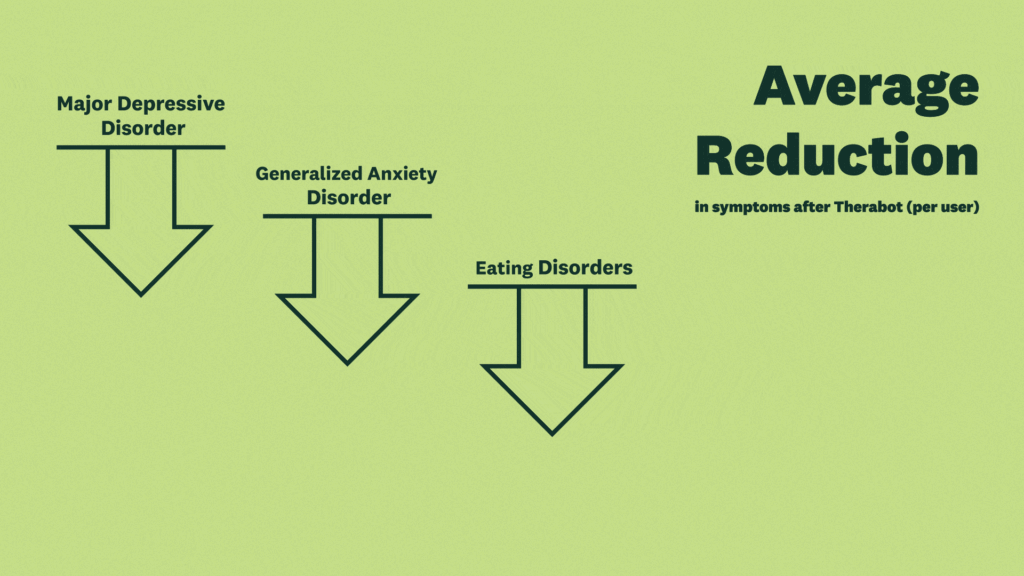
In a world where mental health challenges affect millions yet access to care remains limited, a new solution has emerged from Dartmouth researchers.
Their AI therapy chatbot, Therabot, has just completed its first clinical trial with remarkable results.
Users experienced significant improvements in depression, anxiety, and eating disorders, comparable to what many would receive from traditional cognitive therapy sessions.

This innovation could transform how we approach mental health support in the digital age.
What is Therabot?
Therabot is an AI-powered mental health chatbot designed to deliver therapeutic support through a smartphone application.
Developed with evidence-based therapeutic practices, this innovative tool includes built-in safety protocols for crisis situations and operates under the supervision of mental health professionals.
[Try AI Therapy Chatbot](https://abby.gg?utm_source=Amanpreet &utm_content=67ed17b67f2b0d91d53eee8e)
Features and Implementation of Therabot
-
Research-Backed Approach: Therabot incorporates established therapeutic techniques with AI technology to provide consistent, quality care.
-
Comprehensive Safety Measures: Built-in protocols ensure appropriate responses during crisis situations, with professional oversight.
-
Smartphone Accessibility: Users can access therapy support directly through their mobile devices, removing barriers of location and scheduling.
-
Extended Engagement: During the 8-week trial, users interacted with Therabot for approximately 6 hours, equivalent to about 8 traditional therapy sessions.
Trial Results
The clinical results are impressive and encouraging:
-
51% reduction in depression symptoms
-
31% reduction in anxiety symptoms
-
High reported levels of trust and therapeutic alliance
-
Users formed meaningful connections with Therabot
-
Participants communicated comfortably and engaged regularly without prompting
Why This Matters
Mental health care faces two significant challenges worldwide: stigma and accessibility. Many people avoid seeking help due to fear of judgment, while others simply cannot access quality care due to cost, location, or provider shortages.
Therabot and similar AI solutions could transform mental health support by providing:
-
Stigma-free interaction
-
24/7 availability
-
Consistent therapeutic approach
-
Affordable care options
-
Immediate support without waitlists
Perhaps most surprisingly, the trial suggests some users may develop even more effective and trusting relationships with AI therapists than with human providers in certain contexts.
Looking Forward
While Therabot isn’t meant to replace human therapists entirely, it represents an important advancement in making mental health support more accessible to those who need it.
As AI technology continues to evolve, we may see increasingly sophisticated therapeutic tools becoming an integral part of mental health care systems worldwide.
